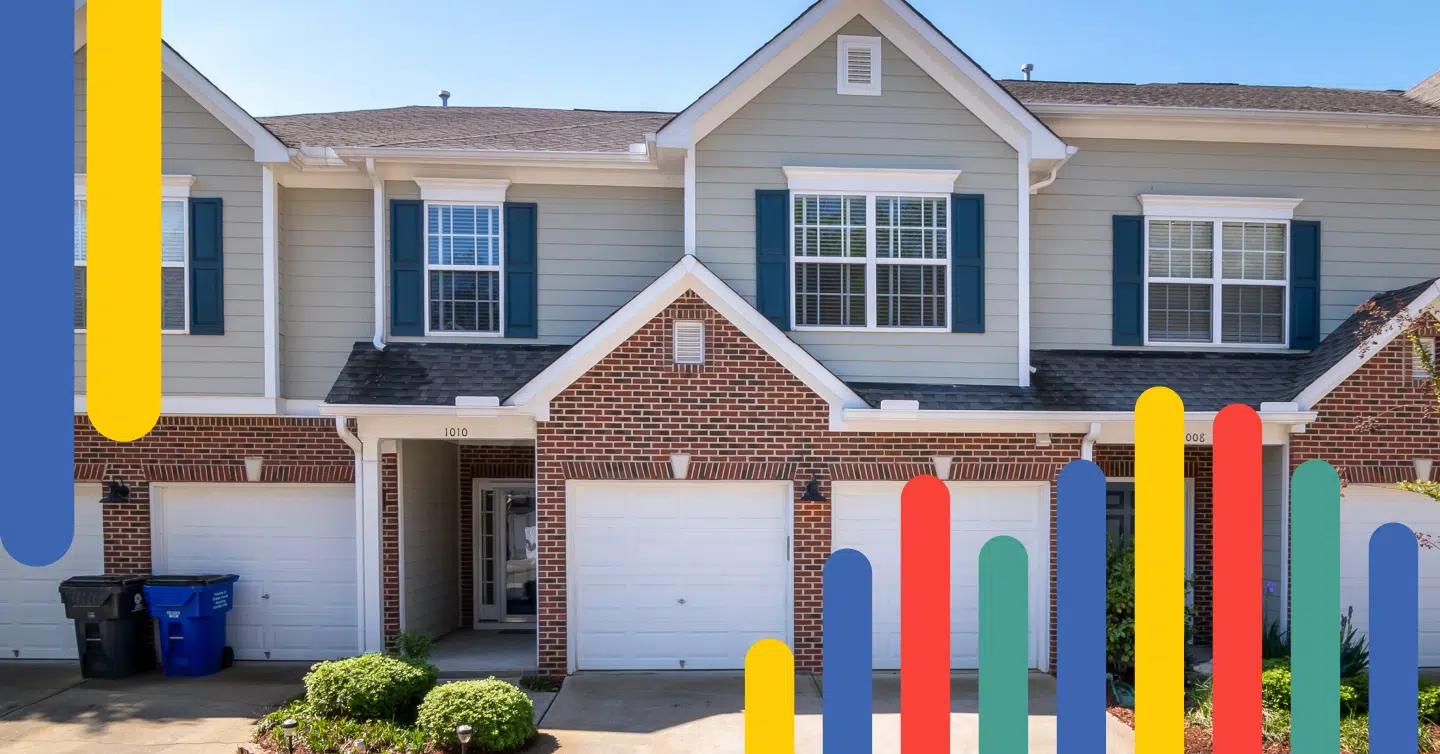Canadian Household Net Worth Increased 2.6%

Stats Canada’s Q3 2025 report revealed the latest insights into how households fared in the year’s third quarter. The report highlights that net worth, the value of all assets minus all liabilities, increased by $460.5 billion, marking the eighth consecutive quarterly rise and the largest increase since the first quarter of 2024.
Household net worth is not evenly distributed across all wealth quintiles. The wealth gap between the wealthiest (top 20%) and the least wealthy (bottom 40%) reached 61.5% in Q2, up 0.2% from a year earlier. The top 20% wealthiest hold almost 70% of financial assets as of Q3.
Key Takeaways
- Household net worth increased by 2.6% in Q3 2025.
- Canadian households own approximately $4.88 in real estate for every dollar of disposable income.
- The wealth gap between the wealthiest and the least wealthy reached 61.5% in Q2 2025.
We’re curious…
Are you a first-time buyer?
The Power of Home Equity Highlighted
Household wealth in Canada continued to lean heavily on the housing market in the third quarter, with home equity serving as one of the strongest contributors to net worth. Residential real estate values fell 0.6% in Q3. Meanwhile, owner’s equity as a percentage of real estate declined to 73.28% in Q3 from 74.25% in Q3 of 2024, as the value of outstanding mortgages increased despite softening home values.
The value of household real estate relative to disposable income is one indicator of housing affordability in Canada. In Q3, this fell to 488.1%, down for the sixth straight quarter. A high ratio relative to disposable income indicates that real estate constitutes a substantial share of household wealth in Canada and is a key asset for long-term financial security. For every dollar of after-tax income, a household owns approximately $4.88 in real estate. This means households hold almost 5x their after-tax income in housing wealth.
However, this can also indicate that home prices continue to rise faster than income levels, making homeownership less attainable for the least wealthy. At the same time, Canadians who already own property continue to see housing as a stabilizing force in their balance sheets, with equity growth helping to counterbalance rising debt obligations. This widening gap highlights the dual nature of real estate in Canada: it serves as both a primary driver of wealth for existing owners and a growing barrier to entry for prospective buyers.
Housing Supply a Continuous Problem
There remains an imbalance between demand and supply, which puts pressure on housing prices, making it increasingly more difficult for individuals and families to enter the housing market and afford a home. The housing supply shortage has significant implications for first-time homebuyers (FTHB) and lower-income households.
Concerns have been raised about the future housing supply and its potential impact on affordability. The value of residential real estate may continue to rise despite higher interest rates. Canada’s mortgage rates are straining homebuyers’ borrowing capacity, and the mortgage stress test adds to the challenges buyers face. These same concerns are driving many Canadians to enter the housing market now to avoid even higher borrowing costs and home prices in the future as our housing supply dwindles.
Mortgages Squeeze Household Budgets
Mortgage costs have increased in Canada, putting financial pressure on household budgets. At the end of Q3, the household debt service ratio, which measures payments on credit market debt as a proportion of household disposable income, decreased slightly to 14.64%. Mortgage interest payments declined 0.9% but were more than offset by a 2.1% increase in obligated principal payments. Household financial liabilities, which consist primarily of mortgage and non-mortgage debt, increased 1.3% in Q3.
Homebuyers must carefully assess their financial situation and consider the impact of higher interest rates on mortgage affordability. Homeowners need to clearly understand their financial situation and develop a budget that allows them to meet their future mortgage obligations while maintaining overall financial well-being.
Seeking professional advice and exploring different mortgage options can help mitigate the impact of rising mortgage costs on homebuyers. A knowledgeable mortgage expert can help prospective borrowers understand affordability and help them shop for the lowest rate available.
Although shopping for a low rate may be a priority for most homebuyers, it’s equally valuable to shop for the right mortgage.
What’s the right mortgage? The right mortgage is a borrowing solution that satisfies your current needs and mitigates future risks. Mortgage experts possess industry knowledge to highlight the features and benefits that may be most valuable for your financial situation.
For example:
- If you choose a mortgage solely based on its low rate without considering the impact of excessive penalties on certain low-rate mortgages, you could be left with a hefty penalty if you or your family need to relocate for work. By honestly discussing your situation with a mortgage expert, you could avoid considering solutions without flexible options, such as portability or lower discharge penalty calculations.
Frequently Asked Questions
How can households manage their mortgage costs amidst high interest rates?
Households can consider refinancing their mortgage to extend amortization, make extra principal payments to reduce principal more quickly, and shop for the best mortgage rates and terms to manage mortgage costs. It is advisable to consult a mortgage expert to determine the best course of action given individual circumstances.
Note: subprime and private mortgages offer longer amortizations, but they are typically suitable for borrowers looking for short-term solutions with an exit strategy. It’s important to be wary of mortgage brokers who jump to these solutions before explaining why you can’t qualify on the prime lending side.
What can be done to address the housing supply shortage?
Addressing the housing supply shortage requires a multifaceted approach. Policymakers can implement measures to incentivize the construction of new housing units, such as offering tax incentives, removing municipal policy roadblocks against increased housing density, or streamlining the regulatory process.
Additionally, investing in affordable housing initiatives and encouraging the development of rental properties can alleviate the strain on the housing market. Collaboration among government, industry stakeholders, and communities will be crucial to developing sustainable solutions to Canada’s housing supply challenges.
What should potential homebuyers consider in a tight housing market?
In a tight housing market, potential homebuyers should be prepared to act quickly and make competitive offers. Before making an offer, it is essential to have a solid understanding of the local real estate market, set a realistic budget, and seek professional advice.
Final Thoughts
The latest StatCan data highlights how housing continues to shape the financial health of Canadians. Household net worth rose again in Q3, but the gain was driven more by financial assets than by real estate, which continues to see declining home prices.
Mortgage debt continued to rise, reducing homeowner equity; however, the debt-to-income ratio declined. For many households, this means higher mortgage carrying costs but less financial pressure, as they devote a smaller share of disposable income to servicing total debt compared to earlier in the year.
Contact a nesto mortgage expert today to find the best mortgage rate and strategy to manage today’s challenges and build long-term stability.
Why Choose nesto
At nesto, our commission-free mortgage experts, certified in multiple provinces, provide exceptional advice and service that exceeds industry standards. Our mortgage experts are salaried employees who provide impartial guidance on mortgage options tailored to your needs and are evaluated based on client satisfaction and the quality of their advice. nesto aims to transform the mortgage industry by providing honest advice and competitive rates through a 100% digital, transparent, and seamless process.
nesto is on a mission to offer a positive, empowering and transparent property financing experience – simplified from start to finish.
Contact our licensed and knowledgeable mortgage experts to find your best mortgage rate in Canada.
Ready to get started?
In just a few clicks, you can see our current rates. Then apply for your mortgage online in minutes!



